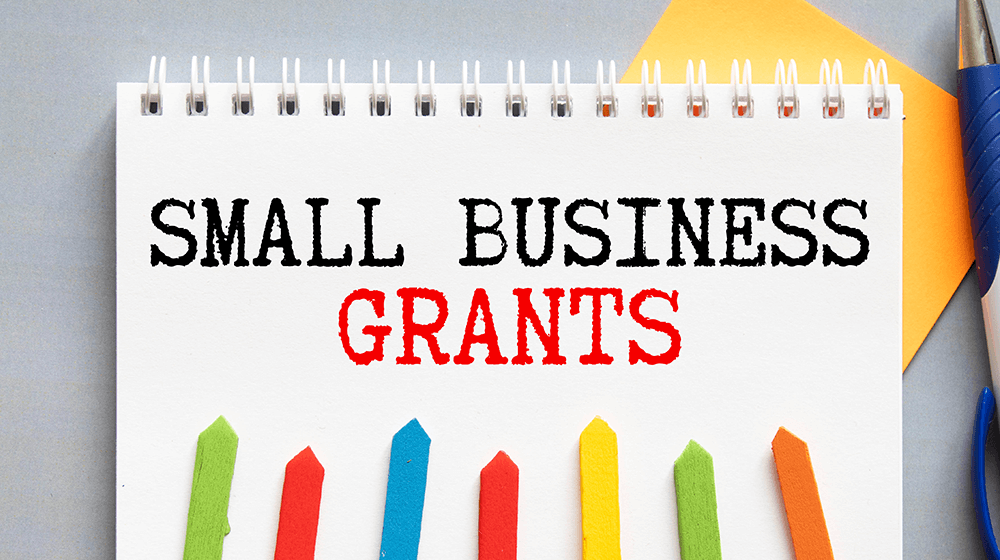
Learn Where to Find Small Business Grants
Small business grants can be an excellent opportunity for those interested in starting or small business funding. Unlike loans and credit cards, grants do not need to be repaid. Free money for starting a business can be rather an attractive prospect to entrepreneurs, many of whom struggle with getting their businesses off the ground.
Of course, it’s not quite that simple. Finding and qualifying for grants requires more work than simply raising one’s hand. So, where can small business owners find grants that they qualify for? What is required to qualify?
Be Cautious
When searching for small business grants, don’t fall prey to internet hype. For every real small business grant out there, it seems there are 10 websites promising free and easy money. The problem is that many of them really only deliver smoke and mirrors.
Small business owners should never pay for grant information. All the information necessary is free and publicly available. Grants are typically offered by state, county, and local governments and by private organizations. No matter the source, anyone asking for money for grant information does not offer any hidden advantage. They have access to the same information you do.
Who Offers Small Business Grants
Where can small business owners find legitimate grants that they qualify for? First, they should figure out whether they might qualify for federal grants based on special certifications. Traditionally, federal business grants are only available to non-profits, businesses engaged in government-sponsored scientific research, or local and state governments. Businesses owned by veterans, minorities, women, or those located in economically disadvantaged areas often have an edge in qualifying for federal and state grants.
Once any special business certifications have been determined, small business owners who are seeking grant money should pay a visit to Grants.gov, the database for federal grants. Small businesses will likely have a tough time qualifying for these grants on their own, but they may be able to partner with larger organizations and receive grant money as a subcontractor.
Non-federal government websites (state, county, and local) are other places to research grant opportunities. Many governments offer grants to assist small businesses with hiring more workers, becoming more sustainable, or improving economically depressed areas.
How to Write a Grant Proposal
Once someone has located grants they feel their business venture might be qualified for, the next step is to submit a grant proposal. There are likely too many applicants for any given grant, so it is important to draft a proposal that will increase the odds of approval. How can this be accomplished?
- First, make sure that the grant is well-suited for the business. The criteria for most grants are quite stringent, and submitting proposals for grants that are only a partial match is likely to be a waste of time.
- Second, follow the directions. This goes without saying, but failure to follow the guidelines provided in the funding notice is a sure-fire way not to get approved.
- The objectives stated in the proposal must be SMART (Specific, Measurable, Achievable, Relevant, and Time-Bound). The purpose of most grants is quite specific, so vague, unmeasurable goals slated to be met at some non-specific future date simply won’t cut it.
- Be specific about how the money will be used. Grant funders want to know exactly how their money will be spent.
- Applicants who aren’t confident in their abilities to write an airtight grant proposal should consider enlisting the services of a professional. Grant consultants are not cheap to employ, but their expertise may prove well worth the expense, especially if their efforts make the difference between approval and denial.
The Small Business Grant Process
Funding Opportunity Announcements
Grant award agencies publicize Funding Opportunity Announcements (FOAs) based on legislation and respective budgets. An FOA includes the information and eligibility requirements applicants can use to determine their interest in and suitability for the grant.
Find FOAs, Register, and Get a Dun & Bradstreet D-U-N-S® Number
If an applicant uses Grants.gov to find federal FOAs, there will be several steps and types of registration required, including getting a Dun & Bradstreet D-U-N-S Number, registering with SAM.gov, and getting a Grants.gov account. It can take up to 30 business days to receive a D-U-N-S Number if a business doesn’t already have one, so it’s important to get started as soon as possible. No one wants to miss grant application deadlines and lose funding opportunities because they didn’t have the proper registrations done in time.
Completing & Submitting Your Applications
A business needs to do a lot of prep work for their application, including making sure they are eligible and outlining exactly how they’ll use the grant money. The planning process will include developing ideas, conducting research, writing the proposal and more – similar to writing a business plan.
Notice of Award (NOA) for Receiving a Grant
Once a grant-awarding agency makes its final decision, an NOA is sent to the organization chosen for the grant. The NOA is a legally binding issuance of the grant. When a business accepts a grant, either by signing the NOA or by using the funds, they are then obligated to carry out the full terms and conditions of the grant.
Post-Award Phase
The work doesn’t stop once a business receives the funds; they’ll also need to implement the grant, report progress, and complete any closeout requirements. The agency that granted the award should be able to assist the business and help make sure they comply with terms and conditions.
The Reporting Process
The awarding agency will monitor progress and spending to help prevent fraud and abuse of funds. The business will need to send reports detailing their conduct and how they are allocating the grant. These reports will be reviewed by the awarding agency, who may also make visits to the organization. The grant recipient should establish a relationship and line of communication with the agency and grant manager so they can ask questions and prevent issues before submitting reports. Also, the business will be audited by the awarding agency, the Government Accountability Office (GAO), and the Office of Inspector General (OIG).
The Closeout Process
When the grant is over, the business will need to complete the closeout phase by submitting final reports. All required reports must be submitted within 90 days after the grant award expires or is terminated. The awarding agency will need to confirm that all of the required work and tasks have been completed, and until it does so, the business is still obligated to fulfill the terms of the grant. The closeout process can be lengthy, depending on whether or not there are concerns or questions, so be prepared to continue fulfilling the terms of the grant past its termination date. Afterwards, hang on to those reports – most agencies require them to be kept for at least three years.
